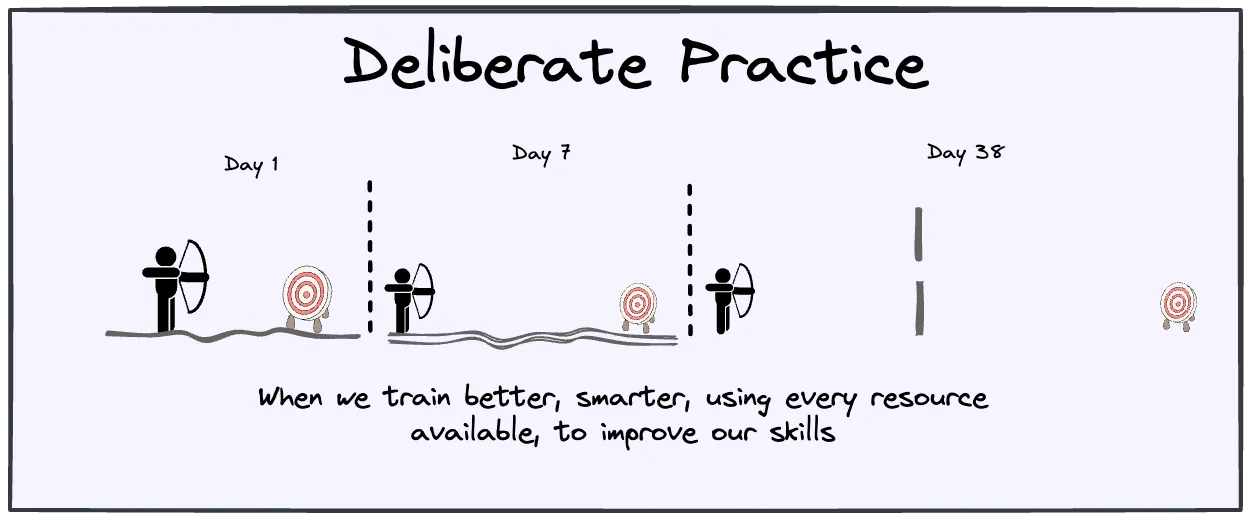Deliberate Practice
Notes
Deliberate Practice is the best way to learn, to gain new skills and to grow.
Deliberate practice as the name suggests isn't easy, because Learning should be hard. It is through challenges that we are able to grow Obstacles as stepping stones, raw talent isn't enough. It won't be fun, it will be hard, and it will require Grit, but this is the only way to achieve Mastery. Deciding to do a delibarate practice is not something you do on a whim. Make sure you have sufficient Intrinsic Motivation for it otherwise you will experience Burnout or you will quit.
common components of deliberate practice:
- Feedback - without knowing what you did right and wrong it's harder to improve. Feedback
- Challenge - a good practice is one which tries to stretch your limits. not too hard, but not too easy Challenge
- Goal - you must have a goal you're trying to reach, something concrete and easy to measure Clarity.
- Technique - improving is usually not by trying harder, but by trying smarter. Find a method that works for you. Systematical Thinking
- Mentor - it is rare that one can do a deliberate practice alone. When we practice our talent, we need to have our complete attention devoted to it, to experience flow. That's why we need an external observer (and an expert's) that can point us towards the right direction Mentor .
Visual

Overview
🔼Topic:: Learning (Map) ◀Origin:: Peak (book) 🔗Link::